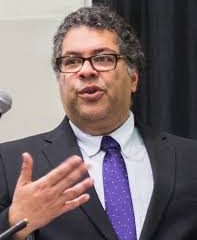Cuba: Navigating Change Amidst Challenges

Introduction
Cuba, a Caribbean nation renowned for its rich culture and history, is currently undergoing significant transformations amidst ongoing economic, political, and social challenges. The relevance of Cuba in today’s geopolitical landscape cannot be overstated, especially as the country seeks to rebound from long-term economic strains exacerbated by the COVID-19 pandemic and renewed U.S. sanctions. Understanding the current state of affairs in Cuba is essential for grasping its potential impact on international relations and regional stability.
Current Events and Economic Challenges
As of late 2023, Cuba is grappling with severe economic hardships, with inflation rates soaring and basic necessities becoming increasingly scarce. The Cuban government recently reported a staggering inflation rate of approximately 60% year-over-year, impacting food availability and essentials. Many citizens have taken to the streets to protest against the deteriorating living conditions, calling for government reforms and better access to resources.
The government’s response has been mixed. While acknowledging the economic crisis, officials have stressed the importance of national sovereignty and have focused on increasing tourism as a key recovery strategy. In recent months, the Cuban Tourism Ministry has launched campaigns to attract international visitors, which they hope will serve as a vital revenue source.
Political Context and International Relations
Political tensions have also influenced Cuba’s current trajectory. The Biden administration has imposed some restrictions, reverting certain policies from the Trump era. Most notably, the easing of travel bans has not materialized as many had hoped, leaving local entrepreneurs in the tourism sector severely affected. As the Cuban government seeks to strengthen its ties with countries like Russia and China, the dynamics of U.S.-Cuba relations remain uncertain.
Significance for the Future
The recent events in Cuba carry significant implications for the future. The economic struggles, combined with political unrest, may lead to either substantial reforms or increased repression by the government. Observers are keenly watching to see how these developments will influence Cuba’s relationships with other nations and the immigrant flow of Cubans seeking better opportunities abroad.
In conclusion, Cuba stands at a crossroads where the decisions made by its leadership and the responses from its citizenry could shape the future of the nation. As global attention returns to this island nation, it is important for readers to stay informed about the ongoing developments. Understanding the complexity of Cuba’s situation aids in grasping its intricacies and highlights the resilience of its people.





